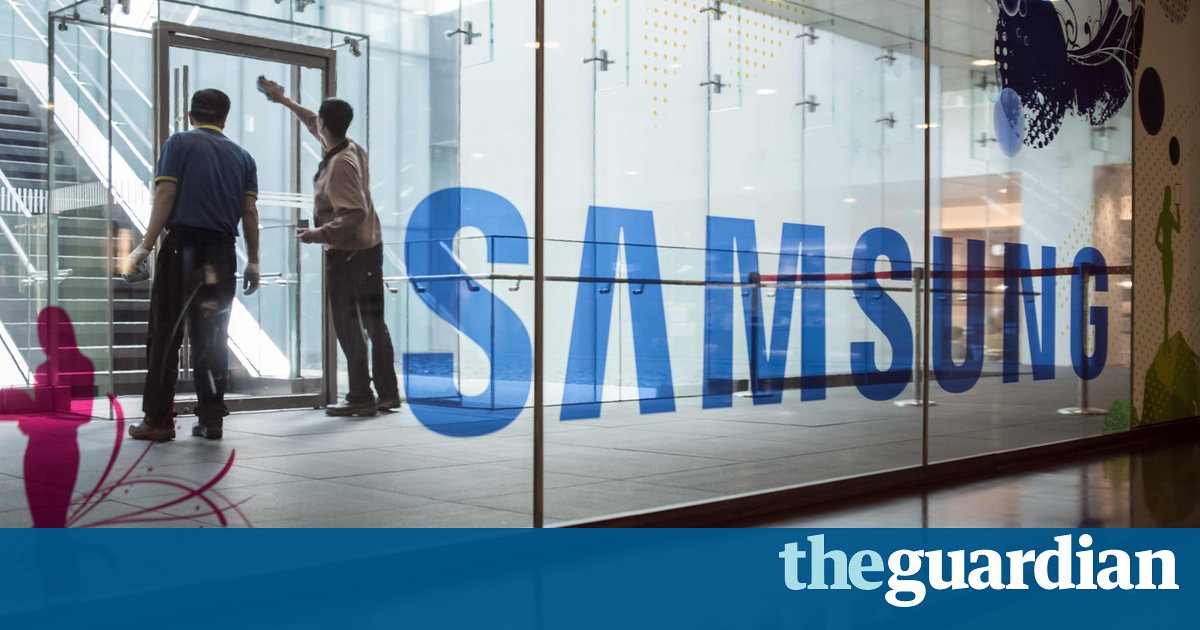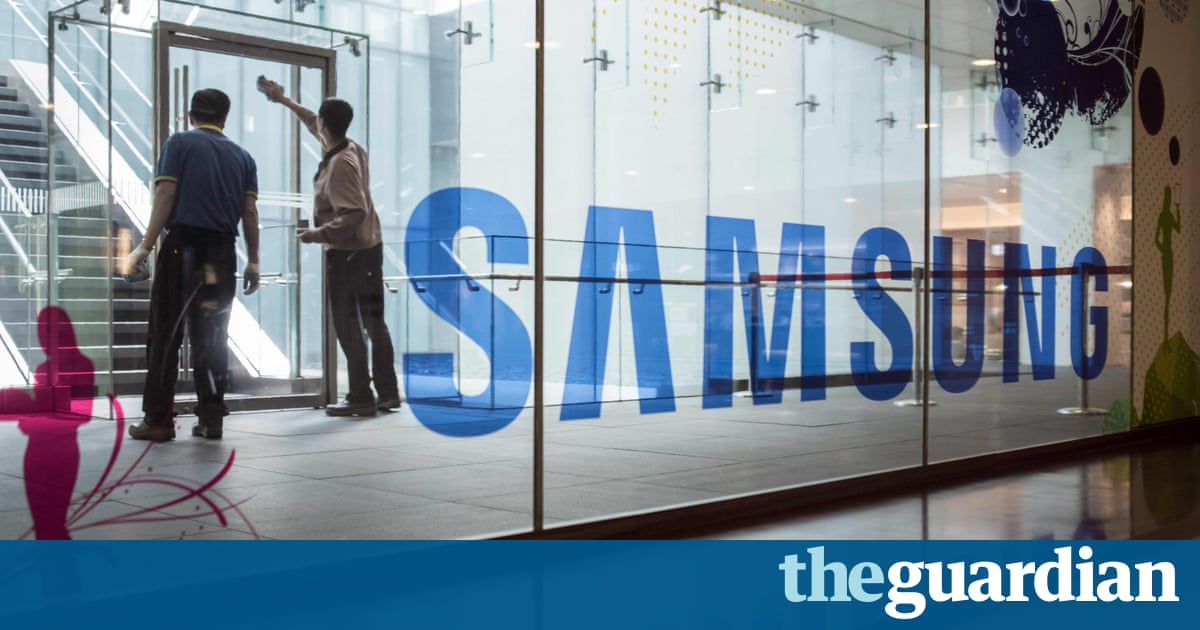Samsung Galaxy Note 7 debacle blows 1.9bn hole in company profits

Company issues warning over third-quarter earnings after shutting down production of fire-prone phones

Samsung has warned that scrapping its failed Galaxy Note 7 handset due to safety concerns will burn a 1.9bn hole in its profits.
The South Korean group was forced to take the humiliating step of permanently withdrawing the Note 7 from sale on Tuesday after users around the world reported flames and explosions caused by overheating batteries.
Samsung shares closed down 1% on Wednesday, after the company warned operating profit for the third quarter was expected to fall to 5.2tn won (3.7bn), down from previous estimates of 7.8tn won. Revenues are forecast to be 2tn won lower, at 47tn.
The company said its forecast reflected the impact of its decision to stop sales, exchanges and production of the device, in consideration of our consumers safety.
The Note 7 was due to relaunch in the UK, costing 740 ($907), at the end of October. Many customers have already bought models, however, through a pre-order campaign. Samsung said 45,000 Note 7s had been sold in Europe, the majority in the UK.
The stumble has allowed rivals including Apple and Chinas Huawei to gain ground in the fiercely competitive handset market.
Critics are now rounding on the company for not taking action sooner to protect its customers. The first concerns about the combustible design were reported more than a month ago.
Soon after launching the device in mid August, multiple reports of property damage and burns began to circulate. A man in Florida posted photographs of his Jeep on fire, saying the vehicle had burst into flames after he had left his Note 7 charging inside.
In early September, Samsung announced that it would replace all 2.5m phones already sold and temporarily suspend sales. But it stopped short of a full recall.
The firm was eventually forced to scrap the Note 7 after replacement phones sent out to customers also caught fire. The fiasco has wiped 14bn from its market value.
This has been a case study in how not to do a recall, said Mark Johnson, associate professor of operations management at Warwick Business School. It was only when the second batch of phones began to fail that they began to show that there were more serious issues at play. Shareholders rightly get twitchy when firms are seen not to care about customers.
Industry observers believe the Note 7 was rushed to market to ensure it appeared in stores ahead of Apples forthcoming iPhone 7. Johnson said the urgency may not have allowed sufficient time for safety tests.
Samsungs reputation has suffered particularly in China, one of its largest markets. Chinese customers were excluded from the initial replacement offer which was however extended to shoppers in Korea, the US and other key markets. State-owned Chinese media were vocal about their countrys treatment, calling it discriminatory.
Samsung shares are mirroring the Notes battery and going into meltdown, Jasper Lawler, analyst at CMC markets, wrote earlier this week. The loss of shares from the Galaxy Note is only the tip of the iceberg. Demand for the flagship Galaxy S8, scheduled for release early next year, could be severely impeded by the loss of consumer confidence in the Samsung brand.
Some observers are now asking whether the firm could face a similar fate to Nokia and more recently BlackBerry, once popular brands forced to close their handset businesses after being left trailing by more successful competitors.
For now, the company is a long way from such a doomsday scenario. It remains the worlds largest smartphone seller by volume, with a 22.4% market share, according to data firm IDC. In the second quarter of 2016, Samsung shipped 77m units, compared to Apple with 40m and Huawei, the Chinese manufacturer, in third place with 32m.
The fallout from Note 7 will be seen in the second half of 2016. Samsung had been expected to sell 19m units, according to Credit Suisse bank.
The meltdown in Samsungs business could not have come at a worse time for the companys heir apparent. Its directors will meet in Seoul on 27 October to approve the elevation of 48-year-old Lee Jae-Yong to the board. Currently chief operating officer, Lee is being primed to take over from his father, Samsungs chairman Lee Kun-hee, who suffered a heart attack in 2014.
Samsungs shares have recovered from their September crash, and were trading at all-time highs as recently as Friday. The damage may already have been priced in, with Wednesdays profit warning doing little to move the dial.